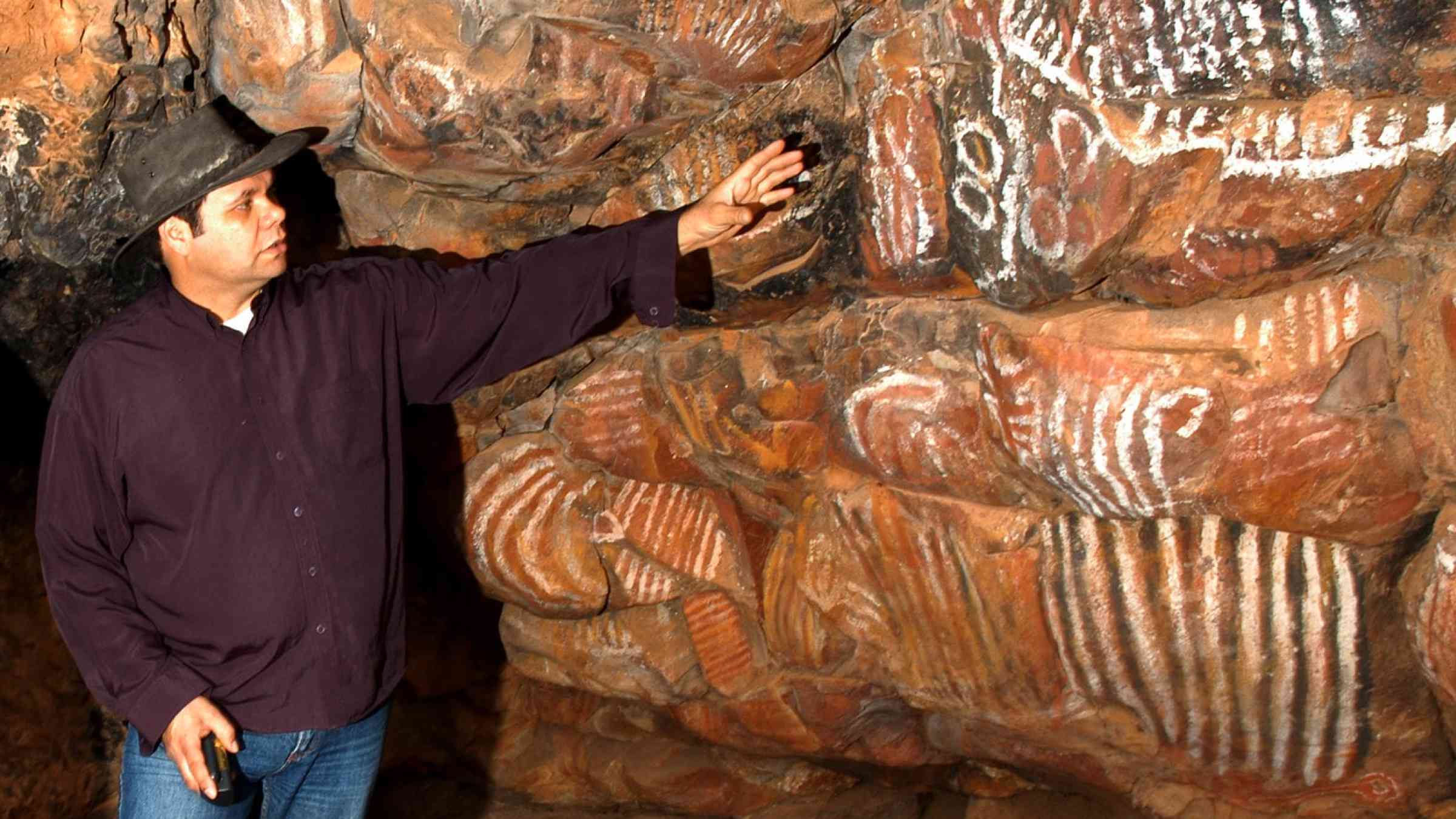Decolonise research to save heritage threatened by climate change

Climate change threatens to destroy invaluable heritage sites and traditions in marginalised countries – but empowering local people is key to adaptation.
That’s according to new research from the University of East Anglia (UEA), the University of Cape Town (UCT) and partner institutions in 11 countries. They contributed to the study, ‘Decolonising climate change heritage research’, which is published today in Nature Climate Change.
Traditional ways of life in Amazonia and the Pacific Island States, ancient Roman coastal cities such as Tipasa in Algeria, the iconic earthen architecture of Mali – including the masonic craftmanship passed down through generations to maintain it – all face the threat of loss and damage from climate change because heritage research and funding haven’t historically been prioritised in these areas.
Locally led research and more equitable research funding are needed to address the true potential loss and damage to heritage from climate change, said lead researcher Prof Joanne Clarke, of UEA’s School of Art, Media and American Studies.
Prof Clarke said: “Climate change poses a threat to heritage globally, but it is particularly acute in low- and middle-income countries (LMIC) where vulnerability to climate change is generally high, with climate hazards such as sea-level rise, flooding and wildfires.
As heritage includes all the inherited traditions, monuments, objects, places and culture, as well as contemporary activities, knowledge, meanings and behaviours that are drawn from them, it is vital that research and knowledge generation becomes more inclusive, equitable and diverse.
Climate change is an increasing focus of heritage research across Europe and North America, including identification of site-specific adaptation options for heritage preservation.
In contrast, climate change research in LMICs is limited by systemic gaps in access to funding and its associated knowledge generation, which act to reinforce historical colonial structures deeply embedded in heritage management.
The researchers said decolonial approaches are not yet widely established in climate change-heritage scholarship and practice, and decolonial efforts can begin to address systemic inequities, recognise the breadth of heritage, and strengthen adaptation action globally.
Dr Nicholas Simpson, of the University of Cape Town, also led on the research. He said: “Euro-American centricity, dispossession, racism, and ongoing power imbalances have perpetuated a narrow view, mirroring colonial legacies that continue to shape priorities for climate research questions, funding, and outputs globally.
Climate adaptation funding for many vulnerable LMICs is heavily dependent on international aid organisations that are commonly located in high-income countries (HIC). This inevitably leads to an unequal balance in the types of heritage earmarked for research or development, with a bias toward heritage valued by those living in HICs while commonly side-lining pre-colonial heritage.
Moreover, belief systems or other forms of intangible heritage historically haven’t been deemed as valuable to Western researchers and funders as places or things, such as temples or statues.
Research agendas and funding, along with the policy agendas to which they are linked, need to be decentred from the HICs.
Priorities for research and practice should be informed by Indigenous and local communities and should integrate their values, preferences and judgements with climate change risk and vulnerability assessments, the study suggests.
Specific efforts also will be required to train scholars to accommodate multiple knowledges and world views in the formulation of research questions and the co-creation of solutions. Collaborating with and mentoring scholars from LMICs will create the next generation of climate change heritage scholars, while aiming to make research findings and data more accessible to them.
Prof Clarke said: “It is critical to overcome geographic, intersectional, and distributional blind spots associated with colonial research legacies. Failure to actively transform in these ways will further entrench these long-standing inequities, as well as exacerbate inequalities in heritage-relevant responses to climate change.
“Climate change heritage research needs to recognise a broad range of potential impacts on host communities’ intangible cultural heritage for holistic protection of sites. Contextually appropriate adaptation, including the needs for a just transition when heritage-dependent livelihoods are disrupted by climate change and heritage policies, must also be considered.”
‘Decolonising climate change heritage research’, is published 14 February 2022 in Nature Climate Change.